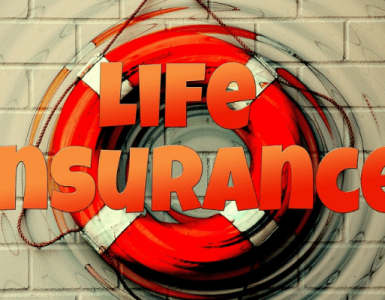
Purchasing a bike that you always wished for is indeed a dream come true. The value it holds for you cannot be stated in monetary terms. However, for more practical purposes, the value of a bike is calculated in a specific manner. Take bike insurance, for example. To calculate the two-wheeler insurance premium for your bike, its value is considered after depreciation.
Depreciation is an important feature that affects your insurance claim every time you file it. What is depreciation, and why is it important? When your bike hits the road, its value starts depreciating!
What is Depreciation?
Depreciation refers to the decrease in the value of your two-wheeler with time. It is a prominent factor and is based on the wear and tear on your vehicle over its lifetime. It is computed according to predefined rates and methods.
How does Depreciation Affect Bike Insurance Premiums?
When insurers calculate the premium amount for your bike insurance policy, they consider the depreciation value. The maximum amount an insurer can pay as compensation for the damage caused to your bike in case of an accident, theft or other issue is called the Insured Declared Value (IDV).
It means the vehicle’s current market value is derived after subtracting the depreciation from the bike’s original purchase price. Therefore, the IDV will decrease as the life of your bike increases. On the other hand, it means you will have to pay a lesser premium, which implies that the compensation amount provided will also be less in case of excessive damage. You can use the two wheeler insurance premium calculator to understand premium computation better. You can populate the fields in the online tool with different values and compare the best option based on your requirements and budget.
Read More: 3 Ways To Make Life Easier With Life Insurance
What is the bike insurance depreciation rate on two-wheelers?
The IDV is determined based on the manufacturer’s selling price, brand, model, and depreciation rate. The following table gives the depreciation rate based on the age of the two-wheeler:
Vehicle’s ageRate of depreciation(%)Less than 6 months5Between 6 months and 1 year15Exceeding 1 year and less than 2 years20Exceeding 2 years and less than 3 years30Exceeding 3 years and less than 4 years40Exceeding 4 years and less than 5 years50
The IDV value of your bike beyond five years is based on the parts and serviceability of the bike.
Depreciation is also applied to the different parts of the vehicle. When your vehicle gets damaged and requires the replacement of specific parts, the claim will be subjected to the deduction of the depreciation value.
Parts made of rubber, nylon and plastic, tyres, tubes, and batteries will be based on a 50 per cent depreciation rate. For parts made out of fibre, a 30 per cent depreciation rate will be considered. And, there is no depreciation for parts made out of glass.
How can you Handle the Depreciation for Your Bike Insurance Better?
As you have seen, depreciation can lead to lower IDV, which means less claim value. Therefore, if you prefer to increase your claim, you will have to pay a higher premium for increased coverage or accept out-of-pocket expenses. However, alternatively, you can choose to opt for a Zero Depreciation add-on cover. For example, TATA AIG bike insurance offers the Zero Depreciation optional cover with its comprehensive bike insurance plans, along with a host of other benefits.
What is the Zero Depreciation Bike Insurance Cover?
The Zero Depreciation add-on eliminates the impact of depreciation on the calculation of the IDV. It is also called the nil depreciation cover. It is an optional cover that you can avail of at an extra cost. Therefore, the insurer will pay for the damages and the repair expenses without accounting for the depreciation and related deductions. Using a bike insurance calculator, you can find out how much the premium would cost with and without the add-on.
If you opt for the Zero Depreciation cover when you purchase bike insurance online, you will get the following benefits:
Conclusion
Purchasing a new bike is a planned expenditure. You should also secure it in the right condition. If you wish to draw more from your bike insurance, you need to know how depreciation has a significant effect on your premium and claim amounts. You can then opt for a Zero Depreciation bike insurance policy to get optimum coverage for your bike and less outflow when you need to get your bike repaired after an accident.
Bike Insurance



































Add comment